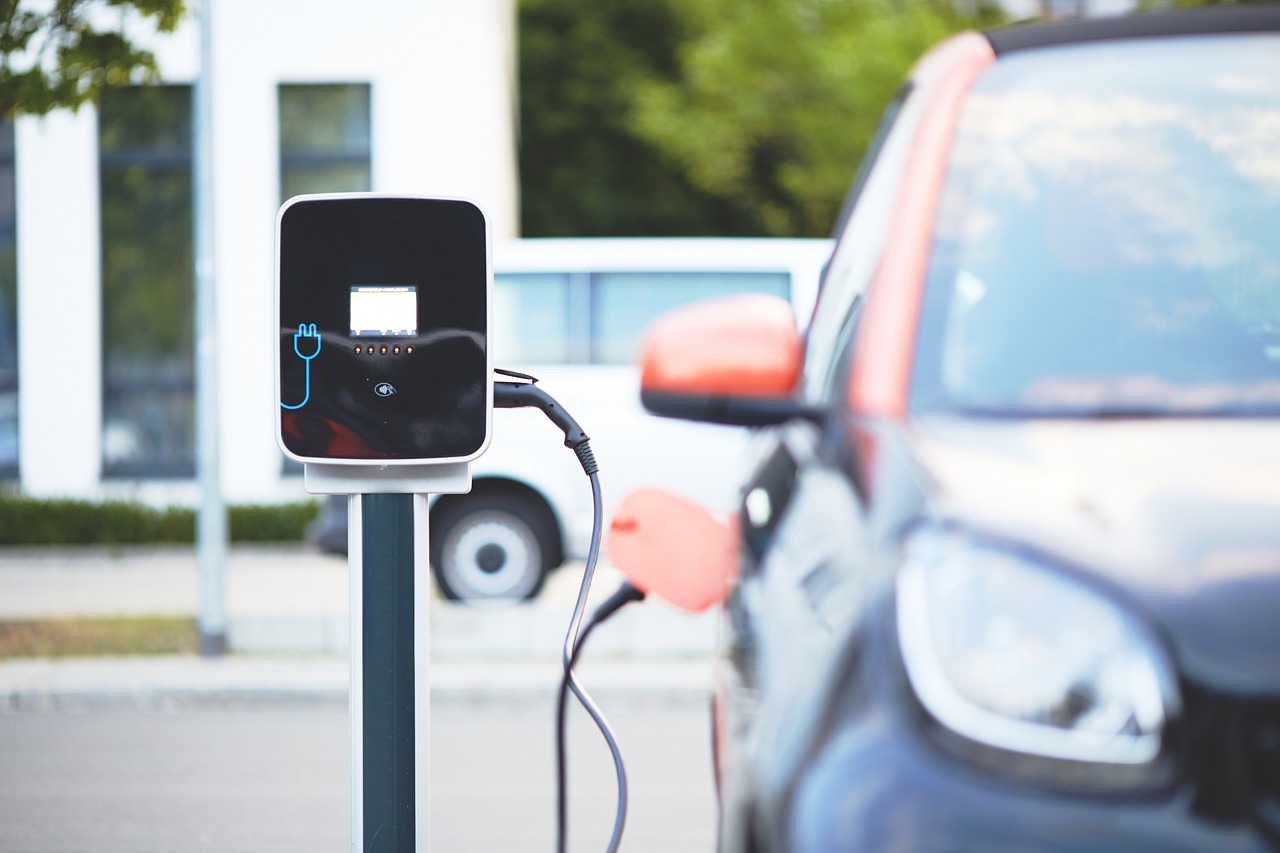The debate between electric and gasoline cars has intensified as both technologies evolve rapidly. With advancements in electric vehicle (EV) technology and the enduring presence of gasoline-powered cars, choosing the right vehicle is more complex than ever.
As we move further into 2024, understanding the differences between these two types of vehicles is crucial for making informed decisions.
This latest post compares and analyzes electric and gasoline cars in various aspects, including performance, cost, environmental impact, and convenience, providing a comprehensive guide to help you determine which car looks set to reign supreme this year.
Overview of Electric Cars
Electric cars, powered by rechargeable batteries and electric motors, are known for their efficiency and eco-friendliness. The market for EVs has seen exponential growth, driven by advances in battery technology, increased range, and improved charging infrastructure.
In 2024, notable models include the Tesla Model S Plaid, known for its impressive acceleration and range; the Lucid Air, with its luxurious features and high efficiency; and the Ford Mustang Mach-E, which blends performance with practicality.
These models exemplify the strides made in the electric car market, making EVs a compelling choice for many drivers.
Overview of Gasoline Cars
Gasoline cars, powered by internal combustion engines, have dominated the automotive landscape for a century. They are known for their powerful engines, widespread availability, and established refueling infrastructure.
Historically, gasoline cars have been integral to automotive innovation, contributing to performance, safety, and comfort advancements.
In 2024, notable models include the Ford Mustang GT, celebrated for its iconic design and robust performance; the Toyota Camry, known for its reliability and efficiency; and the Chevrolet Corvette, which offers a blend of speed and luxury.
These model highlight gasoline cars' continuous evolution and enduring appeal, showcasing their adaptability and relevance in the modern automotive market.
Performance Comparison
When comparing performance, electric cars often outshine gasoline cars in terms of acceleration and speed due to the instant torque provided by electric motors. For instance, electric models like the Tesla Model S Plaid can accelerate from 0 to 60 mph in under 2 seconds. However, gasoline cars like the Porsche 911 Turbo S still hold their ground with impressive acceleration and top speeds.
Electric cars are known for their smooth and quiet handling and driving experience. In contrast, gasoline cars often provide a more visceral and engaging driving experience due to the engine's sound and response.
Regarding longevity and reliability, gasoline cars have a long track record and are easier to refuel and repair. However, electric vehicles, with fewer moving parts, often require less maintenance and offer potentially longer lifespans for critical components like motors and batteries.

Cost Analysis
Initial Purchase Price
Electric cars generally have a higher initial purchase price compared to gasoline cars. This is due to the cost of advanced battery technology and electric drivetrains. However, various government incentives and rebates can help offset these costs, making them more competitive.
Fuel Costs: Electricity vs. Gasoline
Electricity is typically cheaper than gasoline, resulting in lower fuel costs for electric car owners. Charging at home can be remarkably economical, especially when using off-peak rates. On the other hand, gasoline prices are subject to market fluctuations, often making fuel costs unpredictable and generally higher over time.
Maintenance and Repair Costs
Electric cars have fewer moving parts and don't require oil changes, resulting in lower maintenance and repair costs. Gasoline cars, while having more extensive service requirements, benefit from a widespread network of service stations and generally lower parts costs.
Resale Value
The resale value of electric cars has been improving as the market grows and consumer confidence increases. However, gasoline cars still hold a strong position due to their established market presence and the familiarity of potential buyers. It's worth noting that as electric vehicles become more mainstream, their resale value is expected to continue rising.
Environmental Impact
Emissions and Carbon Footprint
Electric cars produce zero tailpipe emissions, significantly reducing their carbon footprint compared to gasoline cars, which emit greenhouse gases and pollutants. This makes electric vehicles a more eco-friendly option, especially in areas with cleaner electricity grids.
Resource Extraction and Sustainability
While electric cars reduce emissions, extracting and processing materials for batteries, such as lithium, cobalt, and nickel, have environmental and ethical implications. Gasoline cars rely on oil extraction, which has a significant environmental impact, including spills and habitat destruction.
Long-term Environmental Benefits and Drawbacks
In the long term, electric cars offer substantial environmental benefits by reducing dependence on fossil fuels and decreasing overall emissions. However, managing battery disposal and recycling remains a challenge. Gasoline cars, although improving in efficiency, still contribute to air pollution and climate change. The shift to renewable energy sources for electricity generation further enhances the environmental advantages of electric vehicles.
Infrastructure and Convenience
Availability of Charging Stations vs. Gas Stations
Gas stations are ubiquitous, offering convenience and easy access almost everywhere. In contrast, the availability of charging stations is expanding but needs to be improved in certain areas, particularly in rural regions.
Charging Time vs. Refueling Time
Refueling a gasoline car takes just a few minutes, whereas charging an electric vehicle can take anywhere from 30 minutes at a fast-charging station to several hours with a home charger. This difference can impact convenience, especially on long trips.
Range and Travel Capabilities
Gasoline cars generally offer longer ranges on a full tank, typically between 300 and 400 miles, compared to many electric vehicles. However, advancements in battery technology are steadily increasing the range of electric cars, making them more competitive for long-distance travel.

Technological Innovations
Advances in Electric Car Technology
Electric vehicles have seen significant advancements in battery technology, resulting in increased energy density, longer ranges, and faster charging times. Moreover, improvements in software and connectivity enhance features like regenerative braking and intelligent navigation, enhancing the overall driving experience.
Advances in Gasoline Car Technology
Gasoline cars continue to evolve with innovations to improve fuel efficiency and reduce emissions. Hybrid options combine gasoline engines with electric motors for enhanced efficiency, while features like stop-start technology and cylinder deactivation optimize fuel consumption without sacrificing performance.
Future Developments and What to Expect
In the future, both electric and gasoline cars are expected to benefit from ongoing research and development. This includes advancements in autonomous driving technology, vehicle-to-vehicle communication, and alternative fuel sources, shaping the future of transportation toward greater efficiency, sustainability, and safety.
Government Policies and Incentives
Subsidies and Tax Incentives for Electric Vehicles
Many governments worldwide offer subsidies and tax incentives to encourage the adoption of electric vehicles. These incentives can include tax credits, rebates, grants for purchasing electric cars, and incentives for installing charging infrastructure.
Regulations Affecting Gasoline Vehicles
Government regulations regarding emissions standards, fuel economy requirements, and environmental policies can impact gasoline vehicles' manufacturing, sale, and operation. Stricter regulations may require automakers to develop cleaner and more fuel-efficient cars or transition to alternative propulsion systems.
Impact of Policies on Consumer Choices
Government policies and incentives are crucial in influencing consumer choices when purchasing vehicles. Subsidies and incentives for electric cars may make them more attractive and affordable than gasoline vehicles, ultimately shaping consumer preferences and market trends.
Consumer Preferences and Market Trends
Current Consumer Attitudes Towards Electric and Gasoline Cars
Consumer attitudes towards electric and gasoline cars vary based on factors like cost, range, charging infrastructure, and environmental concerns. While some consumers prioritize the environmental benefits of electric vehicles, others may prefer the convenience and familiarity of gasoline cars.
Market Share and Sales Trends in 2024
In 2024, electric vehicle sales continue to grow steadily, driven by technological advancements, government incentives, and increasing environmental awareness. However, gasoline cars still dominate the market due to factors like infrastructure limitations, range anxiety, and consumer preferences.
Predictions for the Future
Electric vehicles will gain a larger market share over time as technology advances and infrastructure improves. Government policies, technological innovations, and changing consumer preferences will likely shape the automotive industry's future landscape.
Conclusion
In summary, the debate between electric versus gasoline cars is multifaceted, with each type offering advantages and disadvantages. Electric cars excel in terms of environmental impact, lower operating costs, and technological innovation, while gasoline cars provide familiarity, convenience, and a well-established infrastructure.
Our analysis shows that the choice between electric and gasoline cars ultimately depends on your needs, preferences, and lifestyle. When deciding, consider factors such as driving habits, budget, environmental concerns, and available infrastructure.
As you weigh your options, remember that SGT Auto Transport offers reliable shipping services for electric and gasoline vehicles. Whether purchasing a new electric car or a traditional gasoline model, SGT Auto Transport can safely and efficiently transport your vehicle to its destination, providing peace of mind.







